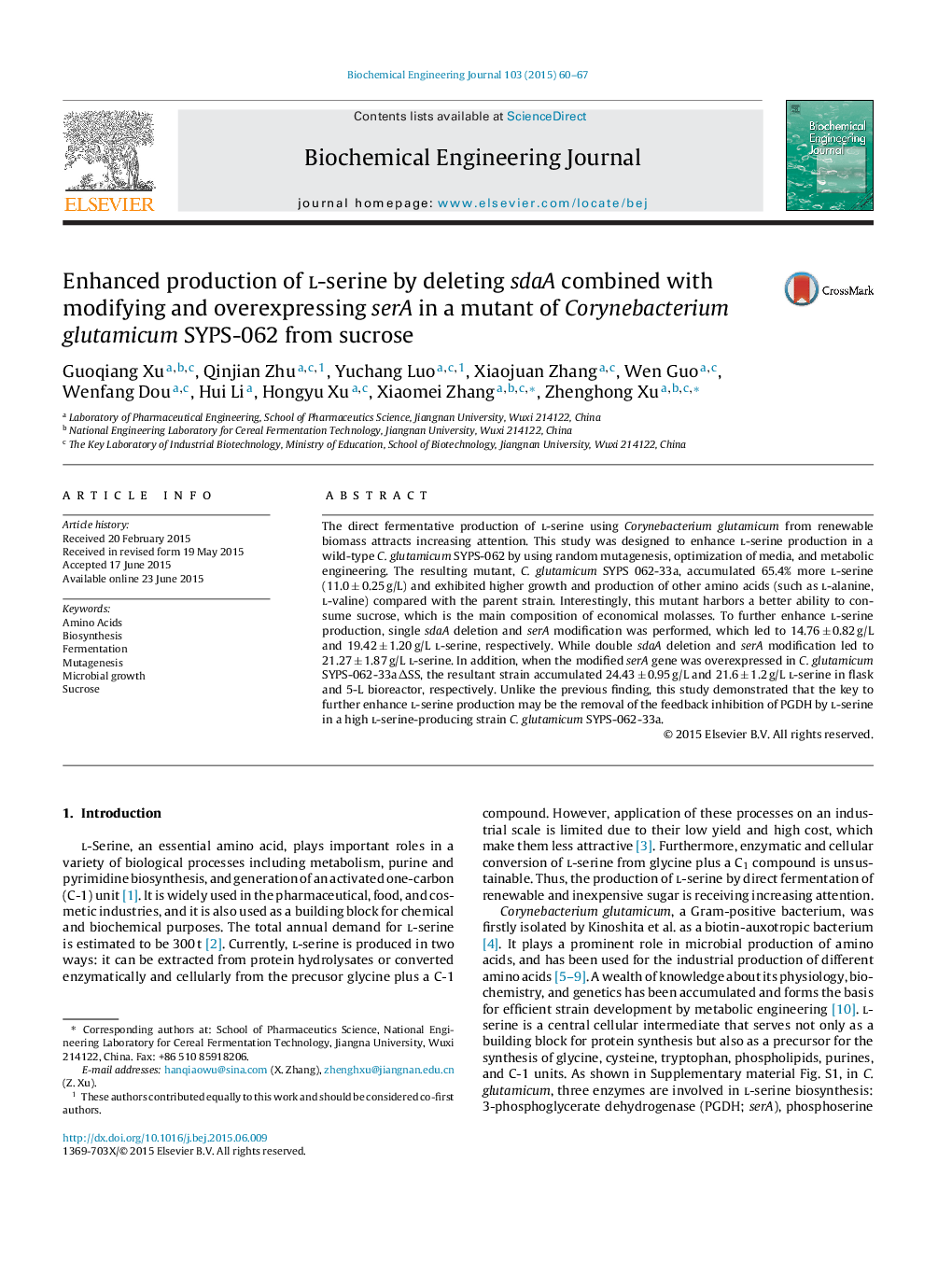| Article ID | Journal | Published Year | Pages | File Type |
|---|---|---|---|---|
| 6484022 | Biochemical Engineering Journal | 2015 | 8 Pages |
Abstract
The direct fermentative production of l-serine using Corynebacterium glutamicum from renewable biomass attracts increasing attention. This study was designed to enhance l-serine production in a wild-type C. glutamicum SYPS-062 by using random mutagenesis, optimization of media, and metabolic engineering. The resulting mutant, C. glutamicum SYPS 062-33a, accumulated 65.4% more l-serine (11.0 ± 0.25 g/L) and exhibited higher growth and production of other amino acids (such as l-alanine, l-valine) compared with the parent strain. Interestingly, this mutant harbors a better ability to consume sucrose, which is the main composition of economical molasses. To further enhance l-serine production, single sdaA deletion and serA modification was performed, which led to 14.76 ± 0.82 g/L and 19.42 ± 1.20 g/L l-serine, respectively. While double sdaA deletion and serA modification led to 21.27 ± 1.87 g/L l-serine. In addition, when the modified serA gene was overexpressed in C. glutamicum SYPS-062-33aÎSS, the resultant strain accumulated 24.43 ± 0.95 g/L and 21.6 ± 1.2 g/L l-serine in flask and 5-L bioreactor, respectively. Unlike the previous finding, this study demonstrated that the key to further enhance l-serine production may be the removal of the feedback inhibition of PGDH by l-serine in a high l-serine-producing strain C. glutamicum SYPS-062-33a.
Related Topics
Physical Sciences and Engineering
Chemical Engineering
Bioengineering
Authors
Guoqiang Xu, Qinjian Zhu, Yuchang Luo, Xiaojuan Zhang, Wen Guo, Wenfang Dou, Hui Li, Hongyu Xu, Xiaomei Zhang, Zhenghong Xu,
